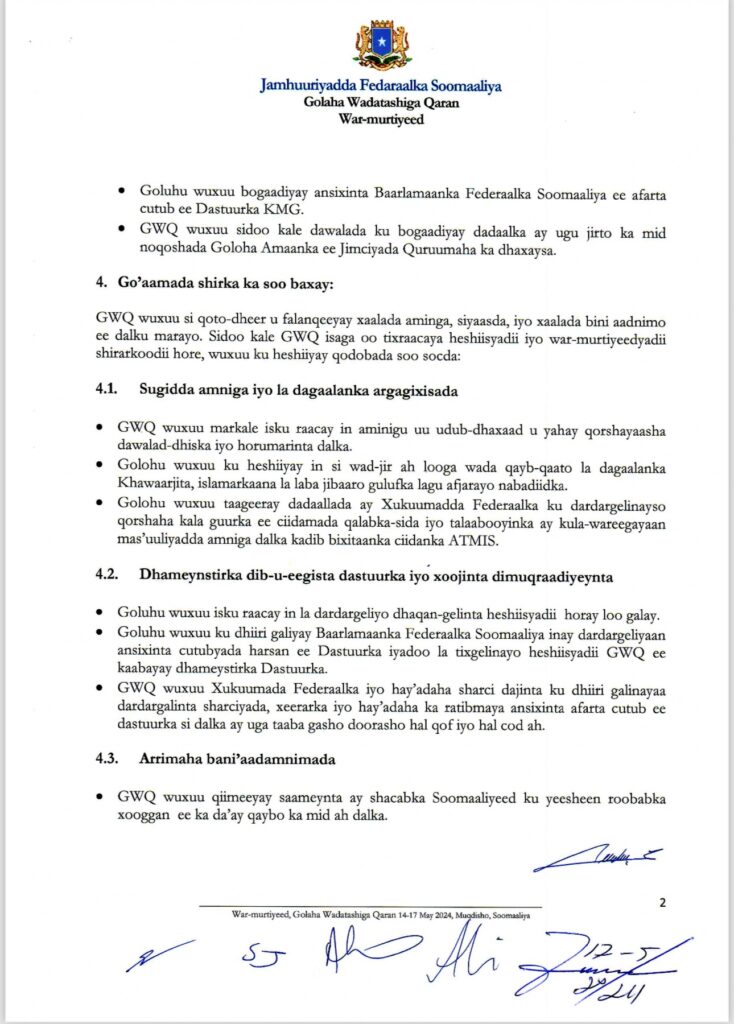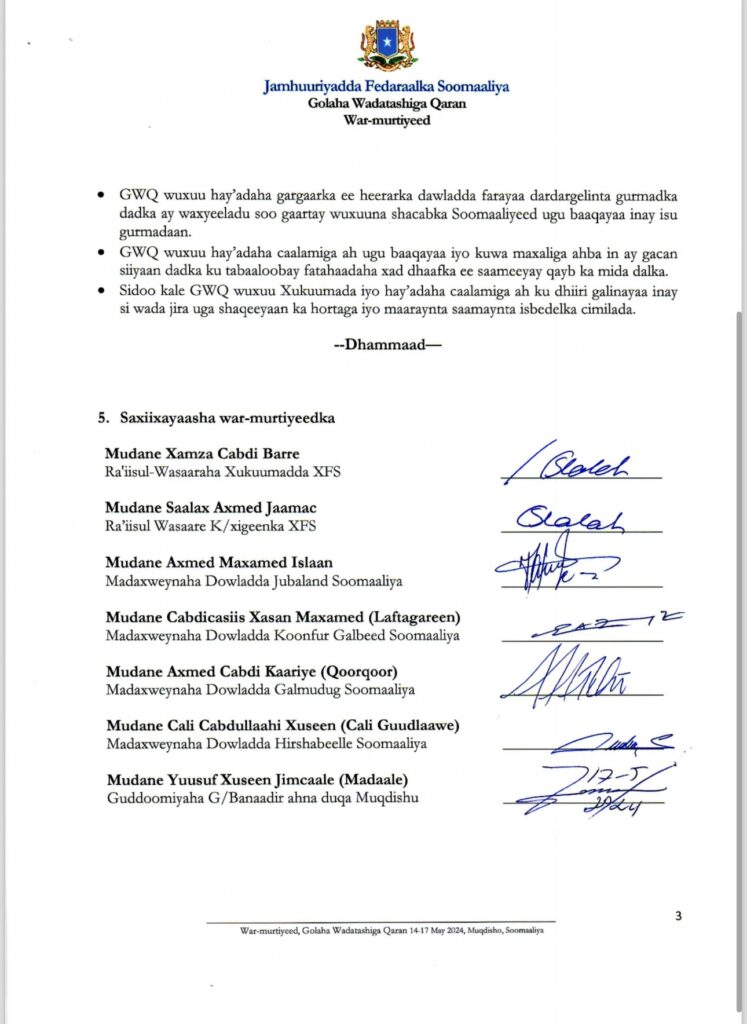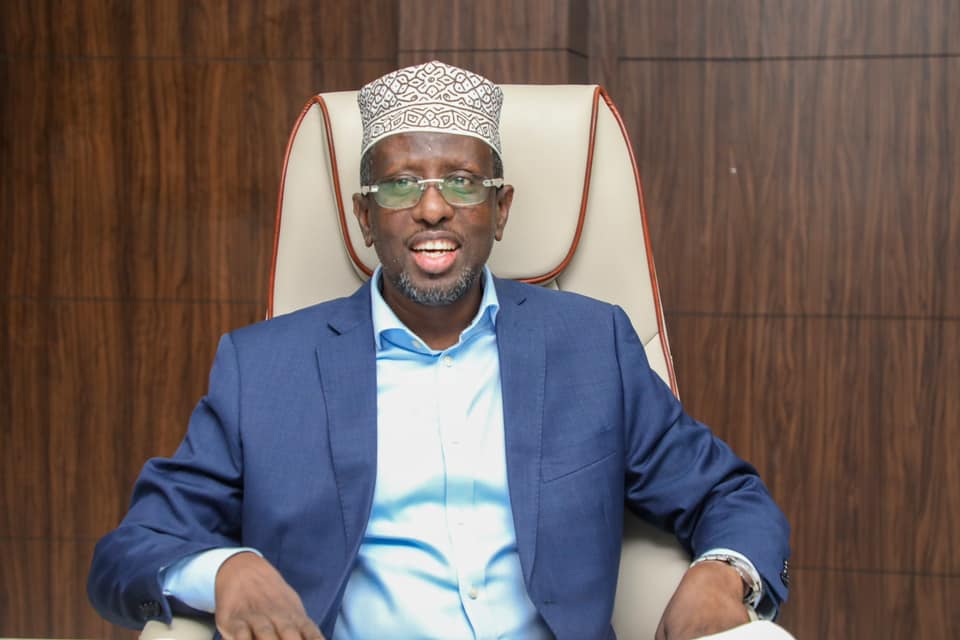Mogadishu, Somalia (SONNA) – The 9th meeting of the National Consultative Council (NCC), presided over by President Hassan Sheikh Mohamud, concluded with significant resolutions on national security, constitutional revision, and humanitarian efforts. The four-day summit, held from May 14 to 17, 2024, in Mogadishu, brought together Somalia’s top political figures, including Prime Minister Hamza Abdi Barre, regional presidents, and the Governor of Banadir Region.
Key Reports and Discussions: The NCC engaged in comprehensive discussions on various national issues. Key reports were presented by the interim leader of SSC-Khatumo on the region’s security and social conditions, and by the National Security Office on the country’s 32-year arms embargo and post-ATMIS security plans. The Armed Forces Command detailed strategies to eliminate the Khawarij threat, while the government outlined stabilization efforts in areas reclaimed from terrorist control.
Acknowledgments: The council lauded the Somali armed forces and citizens for their success in combating Khawarij terrorist groups. It also praised the Federal Government’s progress in debt relief, economic development, East African Union membership, and foreign policy initiatives. The NCC endorsed the Federal Parliament’s approval of four chapters of the transitional Constitution and the government’s bid for a seat on the United Nations Security Council.
Resolutions: The NCC’s resolutions emphasized the importance of trust in government plans for national development and the collective fight against terrorism. The council backed the Federal Government’s accelerated transition plan for the armed forces and the country’s security self-reliance post-ATMIS. It called for expedited approval of the remaining constitutional chapters and related laws to facilitate a one-person-one-vote election.
Humanitarian Concerns: The NCC assessed the severe impact of heavy rains on Somali citizens and directed government aid agencies to hasten relief efforts. It appealed to both local and international organizations for assistance to those affected by extreme flooding and urged collaborative efforts to mitigate and manage climate change effects.
The meeting’s outcomes reflect Somalia’s commitment to security, democratic processes, and addressing humanitarian challenges as the nation moves forward.
–End–











